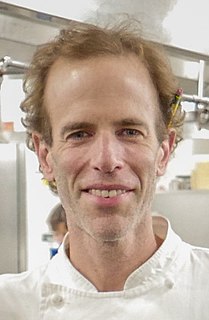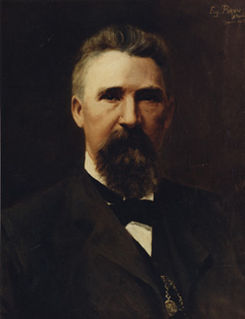A Quote by Lester R. Brown
If an economy is to sustain progress, it must satisfy the basic principles of ecology. If it does not, it will decline and eventually collapse. There is no middle ground
Related Quotes
My Prime Minister regards the economy as our highest priority and forgets that economics and ecology are derived from the same Greek word, oikos, meaning household or domain. Ecology is the study of home, while economics is its management. Ecologists try to define the conditions and principles that enable a species to survive and flourish. Yet in elevating the economy above those principles, we seem to think we are immune to the laws of nature. We have to put the ‘eco’ back into economics.
Early ecologists soon realised that, since humans are organisms, ecology should include the study of the relationship between humans and the rest of the biosphere. ... We don't often tend to think about the social sciences (history, economics and politics) as subcategories of ecology. But since people are organisms, it is apparent that we must first understand the principles of ecology if we are to make sense of the events in the human world.
There's no denying that a collapse in stock prices today would pose serious macroeconomic challenges for the United States. Consumer spending would slow, and the U.S. economy would become less of a magnet for foreign investors. Economic growth, which in any case has recently been at unsustainable levels, would decline somewhat. History proves, however, that a smart central bank can protect the economy and the financial sector from the nastier side effects of a stock market collapse.
Ours is the only religion that does not depend on a person or persons; it is based upon principles. At the same time there is room for millions of persons. There is ample ground for introducing persons, but each one of them must be an illustration of the principles. We must not forget that. These principles of our religion are all safe, and it should be the life-work of everyone of us to keep then safe, and to keep them free from the accumulating dirt and dust of ages.
The human species does not necessarily move in stages from progress to progress ... history and civilization do not advance in tandem. From the stagnation of Medieval Europe to the decline and chaos in recent times on the mainland of Asia and to the catastrophes of two world wars in the twentieth century, the methods of killing people became increasingly sophisticated. Scientific and technological progress certainly does not imply that humankind as a result becomes more civilized.
There is nothing so bad or so good that you will not find Englishmen doing it; but you will never find an Englishman in the wrong. He does everything on principle. He fights you on patriotic principles; he robs you on business principles; he enslaves you on imperial principles; he bullies you on manly principles; he supports his king on loyal principles and cuts off his king's head on republican principles.
If a man has the right to self-ownership, to the control of his life, then in the real world he must also have the right to sustain his life by grappling with and transforming resources; he must be able to own the ground and the resources on which he stands and which he must use. In short, to sustain his human right.






































